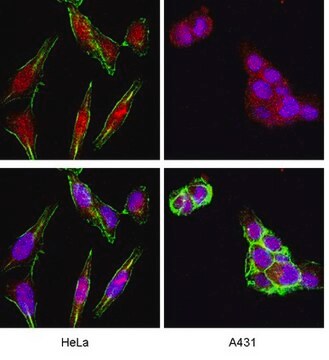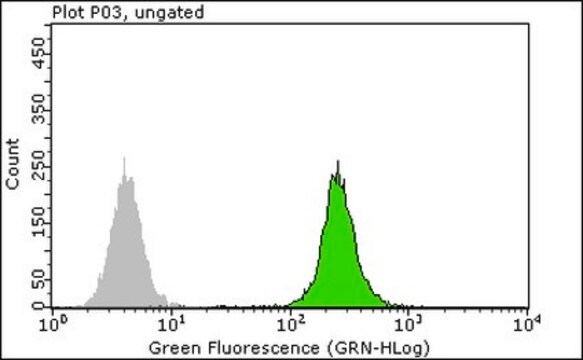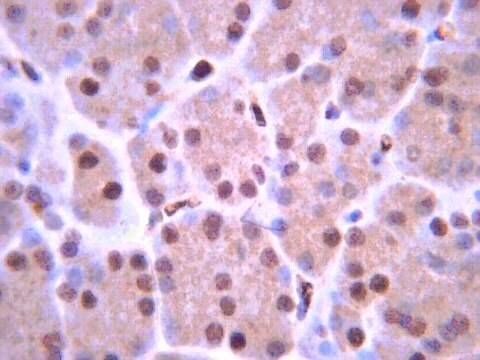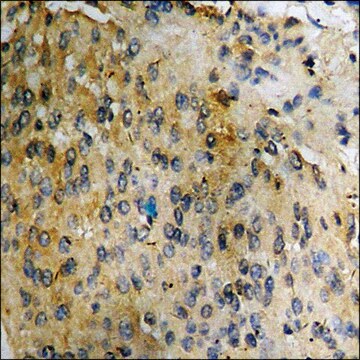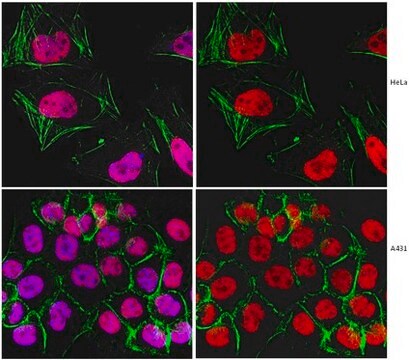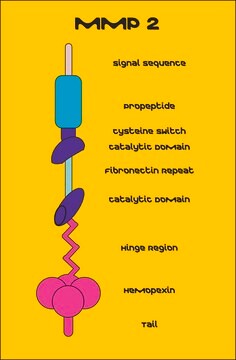MAB4356
Anti-DPPA-2 Antibody, clone 6C1.2
clone 6C1.2, from mouse
Sinónimos:
Pluripotent embryonic stem cell-related gene 1 protein, developmental pluripotency associated 2
About This Item
Productos recomendados
origen biológico
mouse
Nivel de calidad
forma del anticuerpo
purified antibody
tipo de anticuerpo
primary antibodies
clon
6C1.2, monoclonal
reactividad de especies
mouse
técnicas
western blot: suitable
entrada
sample type: mouse embryonic stem cell(s)
isotipo
IgG2aκ
Condiciones de envío
wet ice
modificación del objetivo postraduccional
unmodified
Información sobre el gen
mouse ... Dppa2(73703)
Descripción general
Especificidad
Inmunógeno
Aplicación
Stem Cell Research
Pluripotent & Early Differentiation
Calidad
Western Blotting: Recommended working concentration is 2 µg/mL.
Descripción de destino
Forma física
150 mM NaCl with 0.05% sodium azide.
Almacenamiento y estabilidad
Otras notas
Cláusula de descargo de responsabilidad
¿No encuentra el producto adecuado?
Pruebe nuestro Herramienta de selección de productos.
Código de clase de almacenamiento
12 - Non Combustible Liquids
Clase de riesgo para el agua (WGK)
WGK 1
Punto de inflamabilidad (°F)
Not applicable
Punto de inflamabilidad (°C)
Not applicable
Certificados de análisis (COA)
Busque Certificados de análisis (COA) introduciendo el número de lote del producto. Los números de lote se encuentran en la etiqueta del producto después de las palabras «Lot» o «Batch»
¿Ya tiene este producto?
Encuentre la documentación para los productos que ha comprado recientemente en la Biblioteca de documentos.
Nuestro equipo de científicos tiene experiencia en todas las áreas de investigación: Ciencias de la vida, Ciencia de los materiales, Síntesis química, Cromatografía, Analítica y muchas otras.
Póngase en contacto con el Servicio técnico
